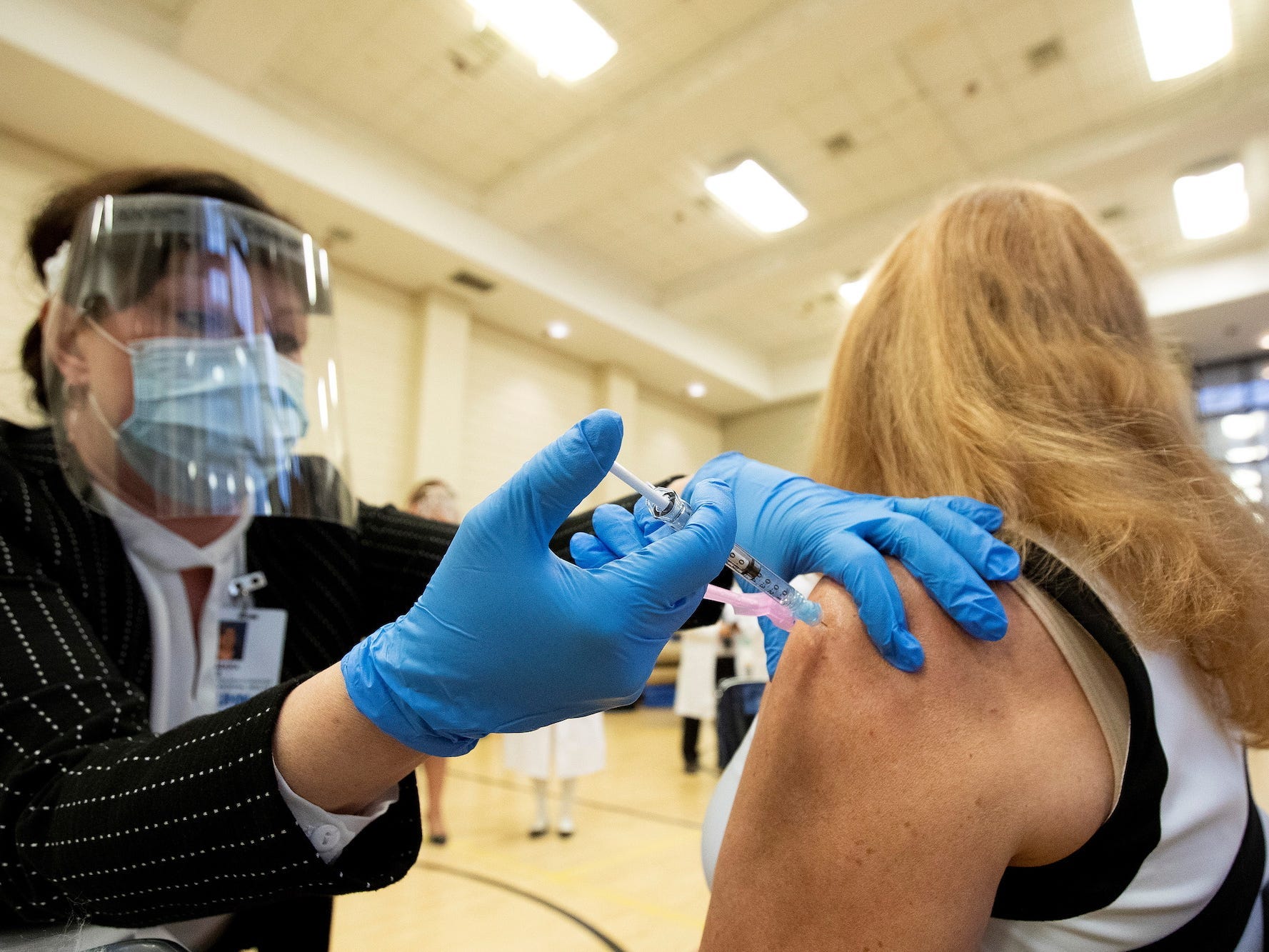
REUTERS/Carlos Osorio
- Canada paused its AstraZeneca vaccine rollout in people under 55 on Monday.
- Officials cited reports of a rare blood disorder in young women in Europe.
- The recommendation was a precaution based on "international data" and a "good supply" of alternative vaccines.
- See more stories on Insider's business page.
Canada has temporarily stopped giving AstraZeneca's COVID-19 vaccine to people under 55 while it investigates cases of an unusual blood-clotting disorder in Europe.
Canadian officials said there were reports from Europe of a clotting disorder among some vaccinated people in Europe, particularly among young women, called Vaccine-Induced Prothrombotic Immune Thrombocytopenia (VIPIT). In this disorder, antibodies "activate" platelets and cause blood clots to form.
"The National Advisory Committee on Immunization (NACI) recommends immediately pausing the use of the AstraZeneca vaccine in all individuals less than 55 years of age in Canada," NACI said in a statement late on Monday.
This mirrors similar suspensions in Europe: France, for example, has also suspended the shot for younger people.
NACI said the move was a "precaution," and that it still recommended AstraZeneca's vaccine for those over 55 years old. This older age group has a higher risk of hospitalization and death from COVID-19, and VIPIT appears to be less common in this group.
Eight of Canada's 10 provinces, including Ontario, Manitoba, and Quebec, confirmed they had stopped giving AstraZeneca's vaccine to those under 55 years old following NACI's announcement.
Several countries in Europe, including France and Sweden, have also suspended AstraZeneca's shot in younger people, pending an investigation into reports of rare blood clots. Health officials in Berlin, Germany, said Tuesday that the city would stop its rollout in under 55s while investigations were ongoing, DW reported.
Most of the 18 countries that suspended the shot during the European Medicines Agency's initial investigation into reports of blood clots have restarted vaccinations with AstraZeneca's vaccine in all age groups.
Read more: COVID-19 Vaccine Tracker: AstraZeneca's shot proves safe and effective, and is headed to the FDA
NACI said Health Canada was investigating the exact mechanism by which the AstraZeneca could vaccine trigger so-called VIPIT, and that it was not yet clear how common the disorder was.
NACI said that its recommendation was also based on a "good supply" of alternative vaccines from Pfizer-BioNTech and Moderna. Canada was expected to receive enough COVID-19 vaccines to fully vaccinate its population before fall 2021, it said.
So far, less than 2% of Canada's population are fully vaccinated, according to Johns Hopkins University.
No reports of blood clots in Canada from AstraZeneca shot
Health Canada said that it hadn't received any reports of blood clots in the country. Dr. Supriya Sharma, Health Canada's chief medical advisor, told The Guardian that she still believed the vaccine's benefits outweighed the risks.
NACI acknowledged in the statement that the relatively high number of young women who reported with VIPIT could be related to the vaccine's rollout - young healthcare workers were one of the early priority groups, and this group includes a high proportion of women. When the shot was first authorized in the EU, Germany, France, and Italy did not give the shot to over 65s, so more younger people could have received AstraZeneca's shot.
Around 20 million people had received AstraZeneca's vaccine as of March 16 in the UK and Europe. Seven cases of blood clots in multiple blood vessels and 18 cases of blood clots in the brain had been reported to the European Medicines Agency (EMA).
The EMA investigated these cases and said March 19 that the benefits of AstraZeneca's shot in preventing COVID-19 - which has killed 2.6 million people worldwide - outweighed the risk of any side effects.
But it couldn't rule out a link between the vaccine and very rare, serious blood clotting disorders, particularly in women under 55 years old, it said. The EMA is looking into this further, and is expected to announce any further findings next week.
"It's reasonable to pause for a period of time while this [risk] continues to be evaluated," Sharma said, per the Wall Street Journal. "I fully understand this can be confusing. Especially for this vaccine, which has had a lot of confusion surrounding it," she added.
Dit artikel is oorspronkelijk verschenen op z24.nl
